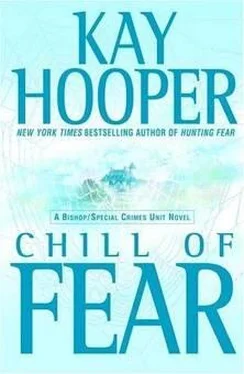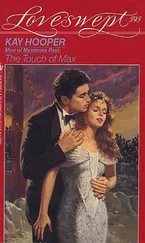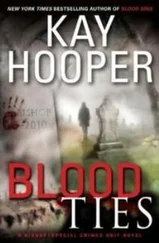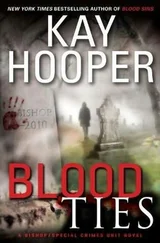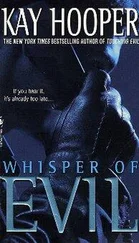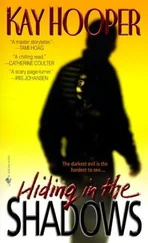Which meant bad news any way you cut it.
Final item: Stephanie Boyd was sitting in the hot seat.
"Shit," she muttered. "I knew this job was too good to be true."
"You can't blame yourself," Diana said.
"Rationally, I know that." Quentin shrugged. "I've told myself to let it go and move on with my life. God knows other people have told me the same thing. But whether psychic abilities, a guilty conscience, or simple instincts, something inside me has insisted all these years that I had to find Missy's killer. And let her rest in peace. It's something I have to do. Something I'm meant to do."
Recalling the thin face and sad eyes she had seen and drawn, Diana said slowly, "I wish I could tell you she was already at peace. But..."
"But you can't. You saw her, which means she's still in — for want of a better term — limbo. Even after all these years, she hasn't been able to move on."
"On to where?"
He smiled slightly. "Do you want me to say 'heaven'?"
"I don't know. Would it be true?"
"Not a question I can answer. Whatever I know of the future tells me nothing of the spirit realm. Or anything beyond this life. So far, anyway."
Diana frowned. She sipped her cooling tea, then said, "My sketch of Missy. I drew that before I saw her."
Quentin knew what she was asking. "It's a form of automatic writing. Your subconscious and psychic abilities were on autopilot, more or less."
"Why?"
"We have a few theories. Automatic writing or drawing is almost always triggered by stress. I know of only a couple of psychics who are able to deliberately tap in to the ability; for the rest of you, it tends to manifest itself because something is being suppressed."
She stared at him.
"Your abilities have been trying to surface for most of your life. Trying to. Between the meds and therapies and denial, they've been pushed down again and again. Beaten back, imprisoned. But something that powerful finds a way, sooner or later, to escape whatever's restraining it. You said something about blackouts earlier."
Diana frowned uneasily. "I did?"
"Yeah. I'm guessing the blackouts began sometime during your early teen years, during the physical and emotional chaos of adolescence. And that either they've grown stronger with time or else tend to occur when you're under unusual levels of stress."
Grudgingly, she said, "The latter."
Quentin didn't let her see how relieved he was by that information. If the blackouts were erratic and stress-related, then it was less likely that Diana's abilities were becoming a danger to her.
Less likely. Not impossible.
"Which means?" Diana prompted.
"Which means — or probably means — that you black out only when your abilities can find no other way of breaking free."
She set her cup down on the coffee table and leaned back, crossing her arms over her breasts. "Okay, now you're really creeping me out. You make these so-called abilities of mine sound as if they have a mind of their own."
"Energy, Diana. Your brain is naturally designed to tap in to energy, and it has to also be able to release it. Think of steam building up inside a pot holding boiling water. If the lid's on tight, the pressure can intensify until it's a destructive force, until the container itself is endangered. Some of the steam has to be allowed to escape."
"Okay, but—"
"The energy you tap in to has to have an outlet, something your instincts have always known. If you can't provide that release valve consciously, by allowing yourself to undergo the sort of visions you experienced earlier today, then your subconscious will find a way to do it for your own safety. The blackouts."
"I don't remember what happens then." She hesitated, then added, "But I...I've awakened in strange places. Doing strange things sometimes."
"I'm not surprised. Psychic blackouts are an extreme response, which means the energy level just before they occur has to be tremendous."
"Then what happens? Once a blackout is... triggered?" Diana wasn't sure which was strongest in her, curiosity or fear.
Quentin shook his head. "I have no way of knowing, not for certain. Psychic abilities are as unique as the individuals who possess them; the unconscious release of stored energy could take just about any form. What sort of strange things have you awakened in the middle of?"
"I was in a lake once. Up to my waist." She shivered. "I couldn't swim at the time. Now I can."
He frowned. "What else?"
"Driving my father's Jag. Very fast. I was fourteen."
"Jesus."
"Yeah. Scared the hell out of me."
"When you came out of the blackout, you didn't have any sense of where you were going or why?"
"No, just — " It was Diana's turn to frown. "Just... a pull."
"Pull?"
"Yeah. As if something — or someone, I suppose — had been calling me, drawing me toward them."
"Where were you headed?"
"I was so shaken up by it I hardly noticed where I was."
"Think. Try to remember."
"It's important?"
"Maybe."
Concentrating, Diana tried to push past the remembered terror and panic and recall more than emotions. What had she done? Slowed the car, looking for a sign, her hands cold and sweaty on the steering wheel and her heart pounding. In the darkness before dawn, everything had looked alien, and she had felt so alone there weren't even words for it.
"I was on an interstate highway," she remembered as a sign flashed through her memories. "Heading south. Took me more than an hour to find a phone and call my father. He was... not happy. As scared as I was, or so it seemed to me." She paused, then added, "There was a new clinic the next week. A new doctor. A new treatment."
"I'm sorry, Diana."
She looked at him. "That was one time I was more than willing to try whatever treatment the doctors offered. I was fourteen years old, Quentin, and I woke up on an interstate highway at five o'clock in the morning driving my father's Jaguar at nearly eighty miles an hour. I was afraid I'd been trying to kill myself. I think my father was afraid of the same thing."
"And the doctors?"
"Did they believe I was suicidal?" Her shoulders lifted and fell. "Over the years, some did, I'm sure. But I never did any of the things suicidal patients were supposed to do. Never tried to slit my wrists or hurt myself in any other way. If you discount the blackout experiences, of course. I never tried to hoard medications. Never talked about killing myself, never drew pictures to indicate suicide was on — or under — my mind."
"What about the blackouts? Frequent?"
"There haven't been that many, really. Maybe two a year, and mostly I come out of them in my bed or just sitting in a chair. Like I've been asleep. Dreaming dreams I can never remember."
"The subconscious tends to be a good guardian, and protects us from what we can't or don't need to endure," Quentin said. "I wouldn't be surprised if realizing you're psychic now doesn't open a few doors for you, though. You may begin to remember those dreams. And those experiences."
That was a scary possibility, Diana thought. Maybe even more scary than not remembering anything. She said, "One of my doctors became convinced that the blackouts were caused by an adverse reaction to one or more of the drugs prescribed for me. That was almost a year ago."
"He took you off everything?"
She nodded. "The first couple of months were... hell. It was a supervised withdrawal, so I had to be hospitalized. Watched. So many of the medications had been prescribed to quiet my mind and keep me calm."
"Sedatives," Quentin said. "Antianxiety meds. Antidepressants."
"Yeah. When all those were taken away from me, even gradually, it was like I went into hyperdrive. I lost twenty pounds because I couldn't be still. I talked so fast no one could understand what I was saying. I couldn't sleep, and nothing could hold my attention more than a few minutes at a time. My father wanted them to put me back on the meds because of the state I was in. But the doctor, bless him, held firm. And after the first weeks, my mind was finally clear enough so I could be firm too."
Читать дальше
